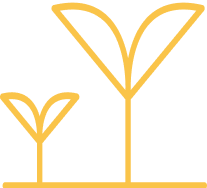Conservation

Conservation
Why it is important?
Humans need to learn how to live in harmony with nature. At the moment, people perceive nature as something separate from them. There are is the human world and there is the animal world and natural ecosystems, as if we can live without it. People do not fully understand the extent of our interconnection, and that the collapse of the natural ecosystems and biodiversity means the collapse of human civilization. We depend on nature for food, water, medicine, shelter, and countless other services.
What is happening?
At the moment, natural ecosystems are in danger. More than 1 million species are threatened with extinction, disappearing at a rate of 1,000 times the norm. Our agriculture is destroying forests, using up most of our water, and polluting the environment with pesticides and chemical fertilizers. We are also destroying habitats and ecosystems at an alarming rate. We lost half of our coral reefs in the past two decades and 18% of the Amazon rainforest.
What we are doing!
IndyACT’s focus is ensuring that the international biodiversity framework under various conventions, such as the CBD and CITES are robust and highly ambitious. It then works to ensure that these frameworks are adequately implemented at the national level, especially in the MENA region. In Lebanon, IndyACT is supporting the conservation of wetlands and the protection of key threatened iconic species, such as the Monk Seal. IndyACT’s approach in this program is the coordinating a network among the biodiversity community, engaging in multistakeholder and cross sectoral cooperation on the topic.



